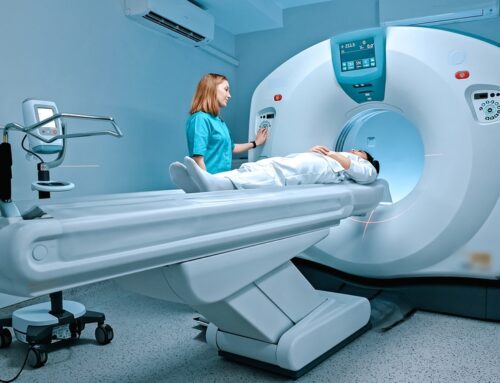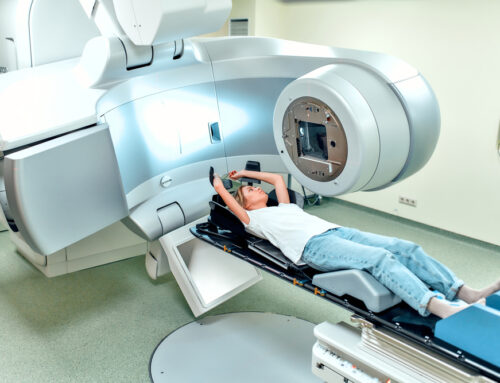Undergoing radiation therapy for cancer can be an emotionally and physically demanding journey. Radiation is often a key part of cancer treatment, aiming to kill or damage cancer cells, but it can also affect healthy tissues and lead to various side effects.
While radiation therapy is effective in treating many types of cancer, self-care plays a crucial role in helping your body cope with the treatment, recover faster, and maintain overall well-being.
Here are five daily habits that can help you manage side effects and support your body during this time.
Habit 1: Prioritize Rest
Radiation therapy can cause fatigue, which is one of the most common side effects experienced by cancer patients. Getting enough rest is essential for your body to heal and recover, not only from the radiation but from the stress that treatment places on your immune system.
Why It Matters
Adequate sleep and rest allow your body to repair itself and maintain energy levels. Fatigue from radiation therapy can be overwhelming, but by prioritizing rest, you can feel more energized and better equipped to manage the demands of treatment.
Tips for Creating a Restful Sleep Environment
- Keep your bedroom cool, dark, and quiet. Consider using blackout curtains or an eye mask.
- Avoid electronic devices (such as phones or tablets) at least 30 minutes before bed, as the blue light can interfere with sleep.
- Establish a bedtime routine that helps you wind down, like reading or listening to calming music.
Habit 2: Nourish Your Body

A balanced diet is crucial when undergoing radiation therapy. Proper nutrition supports the immune system, helps your body tolerate treatment, and aids in recovery. During radiotherapy, some people may experience loss of appetite, taste changes, or nausea, but it’s important to focus on getting the nutrients you need to stay strong.
Why It Matters
Radiation can alter how your body processes food, and maintaining a nutritious diet helps to prevent weight loss, maintain muscle mass, and minimize the risk of infection.
Tips for Maintaining a Healthy Appetite
- Eat smaller, more frequent meals instead of large ones to avoid feeling overwhelmed.
- Include foods rich in protein, like lean meats, beans, and tofu, to help your body repair cells.
- Try incorporating smoothies or shakes if you find it hard to eat solid foods.
Habit 3: Stay Hydrated
Hydration is key to maintaining energy levels and supporting your body through radiation therapy. Radiation can sometimes lead to dry mouth, dehydration, or changes in bowel movements, making it even more important to drink enough fluids.
Why It Matters
Proper hydration helps flush toxins from the body, supports digestion, and can reduce the severity of side effects like nausea or constipation. Staying hydrated also improves skin elasticity, which can be helpful if you are experiencing skin changes from radiation.
Tips for Increasing Water Intake
- Carry a water bottle with you throughout the day to remind yourself to drink regularly.
- Aim for at least 8-10 cups of fluids per day, but consult with your healthcare provider to determine the right amount for you.
- If you’re feeling nauseous or have trouble drinking plain water, try sipping on clear broths, herbal teas, or flavored water.
Habit 4: Manage Stress

Stress can exacerbate physical symptoms and make coping with treatment even harder. Managing your stress during radiation therapy can help boost your mental and emotional resilience.
Why It Matters
Radiotherapy can sometimes lead to anxiety or emotional exhaustion, and chronic stress may weaken your immune system. Managing stress is essential for both mental clarity and physical healing.
Effective Stress-Relief Techniques
- Meditation: Spend 10-15 minutes each day practicing mindfulness or guided meditation to calm your mind.
- Yoga: Gentle, restorative yoga can help release tension, improve flexibility, and calm the nervous system.
- Deep breathing: Practicing deep breathing exercises throughout the day can help reduce stress and manage anxiety.
Habit 5: Connect with Others
Social and medical support is incredibly important during cancer treatment. Isolation can increase feelings of stress and depression, so staying connected with others can help provide comfort and perspective.

Why It Matters
Talking to friends, family, or fellow patients can help you feel less alone and provide emotional support when you need it most. Social interactions also provide a sense of normalcy, which can be uplifting during treatment.
Ways to Connect With Loved Ones
- Schedule regular phone or video calls with friends or family members.
- Ask for help with daily tasks if you’re feeling overwhelmed, whether it’s meal prep, housework, or running errands.
- Don’t hesitate to talk about your emotions and any fears you may have—it’s okay to ask for emotional support.
The Power of a Supportive Healthcare Team During Cancer Treatment
When you’re navigating cancer treatment, knowing that you have a team of sensitive professionals who fully understand your situation can bring you peace of mind.
At Northwest Cancer Clinic, we believe that cancer care is not just about treating the disease—it’s about treating the person. Our experts are committed to addressing not only your physical needs but also the emotional toll that comes with the process. This holistic approach ensures that you’re supported at every step, empowering you to stay on top of your health and well-being during radiation therapy.
No matter where you are in your cancer journey, having a compassionate team like ours can be an invaluable resource as you work toward healing and recovery. You’re never alone—we’re with you every step of the way.






